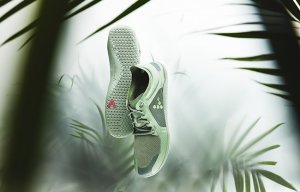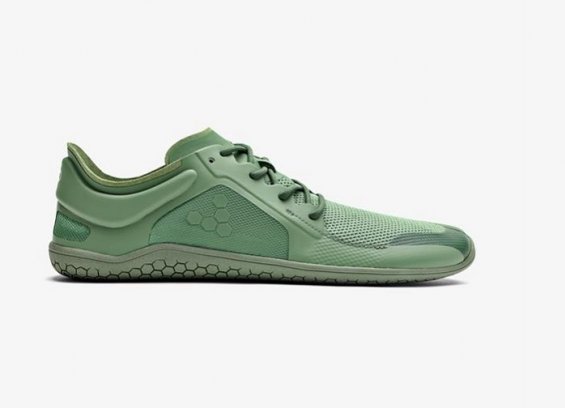
New plant-based shoes from Vivobarefoot
Research shows 67.5% of people think the use of plant-based and natural materials is a key factor in determining if a product is sustainable.

5th June 2019
Innovation in Textiles
|
Los Angeles, CA
The new vegan shoe is designed with over 30% renewable plant-based materials. © Vivobarefoot
Vivobarefoot, a leading barefoot shoe company has announced the launch of Primus Lite II Bio, the company’s most innovative sustainable shoe to-date and one of the world’s first plant-based performance shoes. The mission-driven brand unveiled the highly anticipated unisex shoe on the heels of independent sustainability research, which highlighted eco materials as a key factor in consumer purchasing decisions. The Primus Lite II Bio is available in a limited run online, starting on 20 May.
The new vegan shoe is designed with over 30% renewable plant-based materials, including Bio TPU made from yellow dent field corn, natural rubber and harvested algae called Bloom, instead of single-use petroleum materials. The award-winning design is Vivobarefoot’s lightest and most efficient performance shoe yet and weighs on average an estimated 10% less than today’s standard performance shoes.
The new generation of Vivobarefoot’s legacy Primus Lite style represents a major stride for the company towards its goal of using 100% bio-based materials in a future iteration of this product. Additional styles and colours of the Bio line will be released in autumn 2019.
“The launch of the Primus Lite Bio represents an exciting step away from the industry’s reliance on single use petroleum-based materials and towards a promising future of plant-based alternatives,” said Asher Clark, Design Director at Vivobarefoot. “We want to challenge the world’s relationship with shoes, the materials they are made from and the impact they are having on us and our environment. Our ultimate goal is complete circularity.”
More than 20 billion pairs of shoes are made annually, most from petrochemicals, which have a harmful impact on the environment, contributing to the already serious effects of climate change. The plant-based materials in the Primus Lite II Bio shoe are sourced and managed responsibly, reducing water, energy and CO2 emissions, improving wastewater and ultimately reducing their ecological footprint, the company explains.
Primus Bio uses a corn-based, vegan biopolymer, a natural bi-product of the field-corn food industry called Susterra Propanediol. Sorona, a bio-based fibre, is also used in the shoe. These plant-based polymers derived from the glucose in field corn and are petroleum-free, non-toxic and 100% USDA certified, harvested by DuPont Tate & Lyle Bio Products, a joint venture between DuPont, a global science innovator, and Tate & Lyle, a renewable food and industrial ingredients company.
Bloom Foam is created by harvesting algal biomass from freshwater sources at high risk of algal bloom. Using this algae biomass cleans and restores the environment when harvested.
The release of Primus Lite II Bio follows Vivobarefoot’s commissioned consumer research study, which was conducted by an independent research company in April 2019. The study confirmed that most consumers today have different definitions of sustainability but a key focus for them was the use of eco-friendly materials in the products they buy. This is reassuring data for Vivobarefoot, which is on a mission to phase out petrochemicals and use 100% sustainable materials in the next two years.
“The less you put between your feet and the environment, the better. Just like our other styles, Primus Lite II Bio was designed to let people’s feet do their natural thing, while providing maximum sensory feedback from your body to your brain,” added Mr Clark. “The Primus Lite II Bio is not perfect, it still contains significant non-plant-based products, but it’s a step in the right direction. There are many challenges the footwear industry faces in creating sustainable products, and Vivobarefoot believes it is better to innovate for good, rather than to stand still.”

Business intelligence for the fibre, textiles and apparel industries: technologies, innovations, markets, investments, trade policy, sourcing, strategy...
Find out more